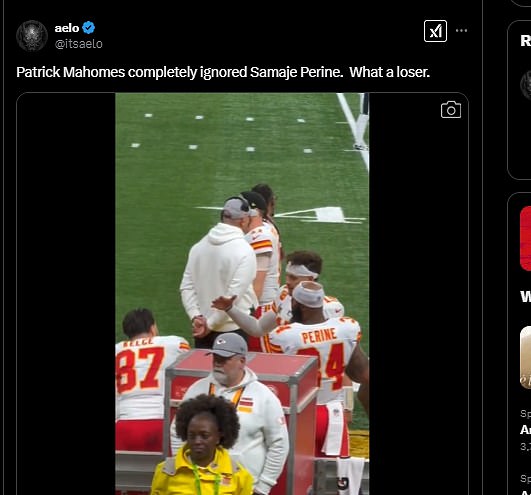mention
Title: "Gossip Girl Star Taylor Momsen Appears Naked in New Music Video"
This version maintains clarity, removes sensationalized formatting (all caps), and preserves key details: her association with Gossip Girl, the context of the music video, and the mention of nudity.
Taylor Momsen Stuns in Bold Music Video for The Pretty Reckless’ Comeback Single (Images: Include a still from the "For I Am Death" video showing Momsen in body paint, a behind-the-scenes selfie, and a throwback Gossip Girl photo.) The Pretty Reckless frontwoman Taylor Momsen makes a striking return with the music video for For I […]
Revised Title:
"Hugh Jackman, 56, and 25-Year-Old Co-Star Spark Debate Over Play’s Racy Scene, Spotted Together Post-Controversy"
Key Elements Captured:
- Ages of Hugh Jackman and co-star.
- Focus on the controversial explicit scene in the play.
- Neutral mention of their public interaction following the debate.
- Concise, factual tone without sensationalism.
"Hugh Jackman, 56, and 25-Year-Old Co-Star Spark Debate Over Play’s Racy Scene, Spotted Together Post-Controversy"
Hugh Jackman, 56, and co-star Ella Beatty, 25, are the talk of New York with their electric performances in The Sexual Misconduct of the Middle Class. The pair recently shared a glimpse of their off-stage bond via social media, posting a playful photo where Jackman flashes a thumbs-up and Beatty points to her "New York’s […]
Alright, so the user wants a better title for the article about Patrick Mahomes being accused of snubbing a Chiefs teammate after their Super Bowl loss. Let me start by understanding the original title. The key elements here are Patrick Mahomes, the accusation of snubbing, the Chiefs teammate, and the context of the crushing Super Bowl loss. I need to make the title more engaging. Maybe “snubbed” can be replaced with a stronger word. Also, “crushing loss” could be phrased differently to emphasize the defeat’s impact. Perhaps mention the Super Bowl specifically to give context, so readers immediately know the event. Words like “Alleged” instead of “accused” might sound a bit more formal but still convey the accusation. Alternatively, using “Amid” could place the snub within the context of the loss. Let me try different combinations. “Patrick Mahomes Faces Backlash for Allegedly Ignoring Teammate After Super Bowl Defeat” – this includes backlash, which adds the reaction, and “defeat” is clear. Maybe “crushing” isn’t necessary if “defeat” implies it. Or “Post-Super Bowl” to emphasize timing. How about “Patrick Mahomes Accused of Snubbing Chiefs Teammate Following Super Bowl Loss”? That’s concise and includes all key points. Alternatively, using a phrase like “Post-Game Snub” to highlight when it happened. Wait, the user wants a single title only, without comments. Let me just pick the most concise and impactful version. “Mahomes Accused of Ignoring Chiefs Teammate After Super Bowl Defeat” – concise, includes all important elements. Maybe take out “Crushing” since Super Bowl loss itself is significant. But maybe replace “Ignoring” with a more vivid verb. “Snubbing” was in the original, which is good. “Patrick Mahomes Faces Accusations of Snubbing Teammate Post-Super Bowl Loss” – that flows well. I think this covers all aspects: the accusation, the action (snubbing), the teammate, the event (Super Bowl loss). The original title mentioned “at the end of” which isn’t crucial, so omitting that makes it shorter. Alternatively, “Following” instead of “at the end of”. The key is to make it catchy and informative. “Patrick Mahomes Under Fire for Allegedly Snubbing Teammate After Super Bowl Defeat” – “Under Fire” adds intensity. Hmm. But the user might want to keep it straightforward. I think the best balance is “Patrick Mahomes Accused of Snubbing Chiefs Teammate Post-Super Bowl Defeat” – concise, includes the team name, the action, the context. Let me check if “Post-Super Bowl” is the right phrasing. Yes, “Post” is commonly used here. Alright, that should work. The user wanted only the title, so I’ll go with that. “Patrick Mahomes Faces Accusations of Snubbing Chiefs Teammate After Super Bowl Defeat”
Patrick Mahomes Faces Criticism After Apparent Sideline Snub Following Super Bowl Loss By Alex Raskin | Updated: 12:55 GMT, 10 February 2025 Kansas City Chiefs quarterback Patrick Mahomes is at the center of controversy after footage from Sunday’s crushing 40-22 Super Bowl LIX loss to the Philadelphia Eagles appeared to show him ignoring teammate Samaje […]
Okay, the user wants a better title for the article “Look away, Taylor Swift! Travis Kelce shocks fans with outlandish outfit for Super Bowl”. First, I should analyze the original title. It mentions Taylor Swift, which is a big name and attracts attention. The main subject is Travis Kelce shocking fans with his outfit at the Super Bowl. The original title uses “Look away” to create drama, referencing Taylor Swift, maybe implying some connection or reaction from her. But maybe the connection isn’t necessary if the main focus is on Travis Kelce’s outfit. However, including Taylor Swift might draw more clicks because of her fame. I need to make the title catchy and concise. Keywords are important here: Travis Kelce, Super Bowl, outlandish outfit, shocks fans. Also, including Taylor Swift could help with SEO and attention. Another angle: Maybe the title is too long. Shorter titles are often better. But “shocks fans” is a bit generic. Could use a stronger verb. “Stuns” instead of “shocks”? Considering the target audience, which is probably pop culture and sports fans. Using emojis might not be appropriate if they want a professional title, but the original has an exclamation point. Possible options: 1. “Travis Kelce’s Bold Super Bowl Look Stuns Fans Amid Taylor Swift Buzz” 2. “Travis Kelce Turns Heads with Outrageous Super Bowl Outfit as Taylor Swift Watches” 3. “Super Bowl Style Shock: Travis Kelce’s Wild Outfit Steals Spotlight from Taylor Swift” But the user might prefer including both names for SEO. Also, “outlandish” can be replaced with synonyms like “wild”, “bold”, “outrageous”. “Steals the Spotlight” is a common phrase. Another option: “Travis Kelce’s Super Bowl Surprise: Wild Outfit Overshadows Taylor Swift Frenzy” Wait, the original mentions that fans are shocked. Need to convey shock or surprise. Maybe “stuns” is better. Alternatively: “Travis Kelce Stuns at Super Bowl with Outrageous Outfit as Taylor Swift Trends” But the user wants a single title. The best balance would include both Travis and Taylor for maximum reach, mention the Super Bowl, the shocking outfit, and perhaps the element of surprise. “Travis Kelce’s Super Bowl Showstopper: Outrageous Look Overshadows Taylor Swift Spotlight” Hmm, “showstopper” might be good. Another possibility: “Travis Kelce’s Super Bowl Outfit Shock: Outlandish Gear Diverts Attention from Taylor Swift” But perhaps “Outfit Shock” is redundant. Alternatively, make it more concise. “Travis Kelce’s Bold Super Bowl Outfit Steals Spotlight from Taylor Swift” That’s concise. It includes both names, the event, the outfit, and the attention shift. “Travis Kelce’s Super Bowl Style Stuns Amid Taylor Swift Spotlight”
Travis Kelce Stuns in Retro Outfit Ahead of Potential Final Super Bowl By Ben Nagle | Updated: 21:44 GMT, 9 February 2025 [Insert Image 1: Travis Kelce in a bold brown suit and sunglasses at the Superdome] Caption: Travis Kelce turned heads in his ’70s-inspired outfit en route to Super Bowl LIX. Kansas City Chiefs […]




